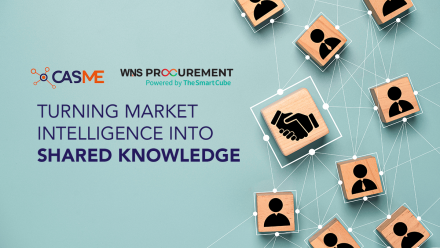
The ongoing global situation means that it’s never been more important for Procurement professionals to develop resilient supply chains and understand the potential challenges ahead. We invited a few of CASME’s Analysts around the world to share their opinions on pivotal trends that they anticipate will influence the industry over the next 12-months.
Geoff Allwright (Business Travel/Fleet/Events)
I am looking forward to what 2024 has in store, as nothing stays the same. In the Travel, Fleet and Meetings categories, I expect to see more challenges around the ability and willingness to ‘travel around and meet’. The pressures of sustainability and employee safety will be felt as our stakeholders and colleagues demand more of us in Procurement.
Suppliers in these categories will have to be increasingly innovative. For example, providing electric vehicles, sustainable aviation fuel, and ‘green’ hotel/meeting rooms.
My top 3 skills requirements for category managers are: market knowledge, supplier management and innovation.
CC Chang (Asia)
Threats confronting the procurement profession in Asia during the next 12 months are:
- Supply chain disruptions and recovery from a 3-year COVID-19 pandemic, exacerbated by natural disasters from El Nino
- Geopolitical tension between superpowers has created greater urgency to diversify sources of supply away from China to South Asia and Southeast Asia
- Inflation pressures have increased the cost of goods and services, requiring procurement professionals to find ever greater cost-effective solutions
- Accelerated adoption of AI, robotics and digital technology to compensate for aging demographics in key markets such as China, Japan, Korea
- Growing emphasis on Sustainability and ESG, and with more financial institutions increasingly funding GREEN projects, Procurement must urgently incorporate sustainability criteria into supplier selection and practices.
To stay relevant, Procurement leaders will have to adapt their processes, embrace digital technologies, upskill their workforce, and retaining their existing skilled procurement talent. Investment will need to be made in reliable and resilient suppliers, and in E-Procurement solutions for quality data-driven decision-making, supported by strong data analytics capabilities to extract valuable insights and to continually refine the procurement strategy to adapt to a rapidly changing external environment.
Karen Fedele (North America)
In 2024, the challenge will remain for Procurement to be recognised for the value it delivers to the organisation; whether that be risk mitigation, supply assurance, business continuity, supplier relationship management or other contributions.
Risk management will increase in importance as we face complex and evolving risks such as geopolitical actions, cybersecurity threats, natural disasters, economic uncertainties, and regulatory changes. Regardless of our geographic location, we are all trying to understand what impact artificial intelligence will bring to Procurement and the way we do our jobs.
Focusing on soft skills such as relationship building, problem-solving and ethical conduct will be integral for future success.
David Natoff (Europe)
For me, third party risk management (TPRM) continues to be the key challenge and priority for Procurement. This is due to the absence of a centralised model and a significant increase in ‘as-a-service’ contracts across many categories; requiring non-IT category managers having to be expert in negotiating complex software contracts.
Procurement's TPRM priorities should be to:
- Provide leadership and advisory services to other departments with TPRM responsibility
- Take ownership of risk identification, assessment and management
- Mandate contracts for high-risk items
- Invest in new technology for the managing contracts, suppliers and ESG.
TPRM is just one challenge facing Procurement, alongside digital transformation, stakeholder engagement, cost management in an inflationary market, and the ongoing need to deliver value. These challenges highlight the requirement for a diverse team, and for Procurement to attract talent with a broad skill set, including individuals with high EQ as well as IQ.
Brian Cunningham (Global)
Based on input from CASME members and from additional experiences, I view the key challenges and priorities for Procurement in 2024 to include:
- Increased focus on ESG, DEI and sustainability initiatives and a requirement to meet targets
- Accelerated digital investment and transformation, technology enablement, and advanced procurement/spend analytics in upstream and downstream processes
- Supplier life-cycle management, supply chain resilience and continuity through total cost of ownership (TCO), cost transparency and contract precision
- Talent recruitment, retention, and attrition management globally and particularly in the US
- Development of cross-category collaboration/management between Procurement and stakeholders to obtain alignment with objectives, KPIs and priorities.
Recent global disruptions have resulted in a significant elevation of risk management within procurement, emphasising risk assessment, evaluation, selection of suppliers, and the use of third-party risk management (TPRM) companies. CASME’s global procurement community acknowledges the critical importance of an active, collaborative supplier relationship management (SRM) programme as the key to continuity and prioritisation during crises, as well as future risk management.
The consensus is that while skills in analytics, digital applications and technology will be essential, none will replace the ability to develop relationships and exert influence without authority.
Back to News



